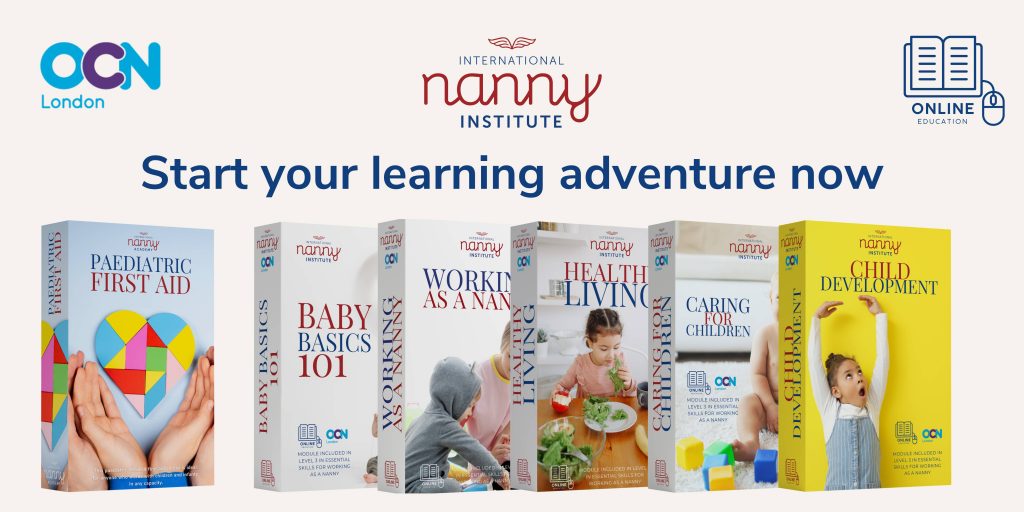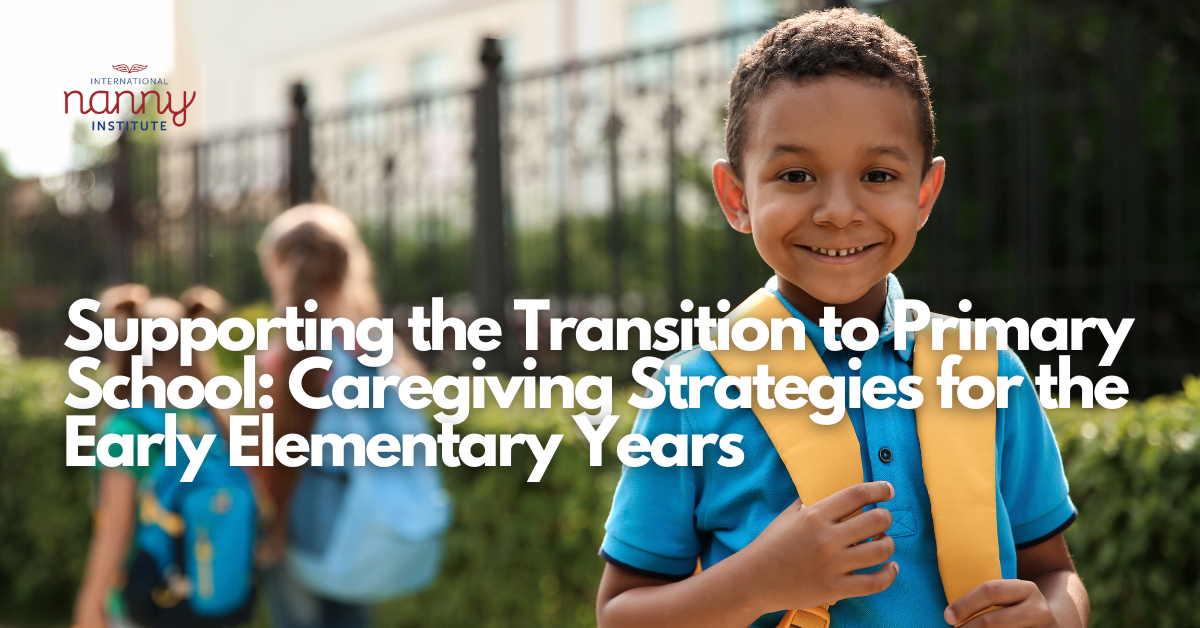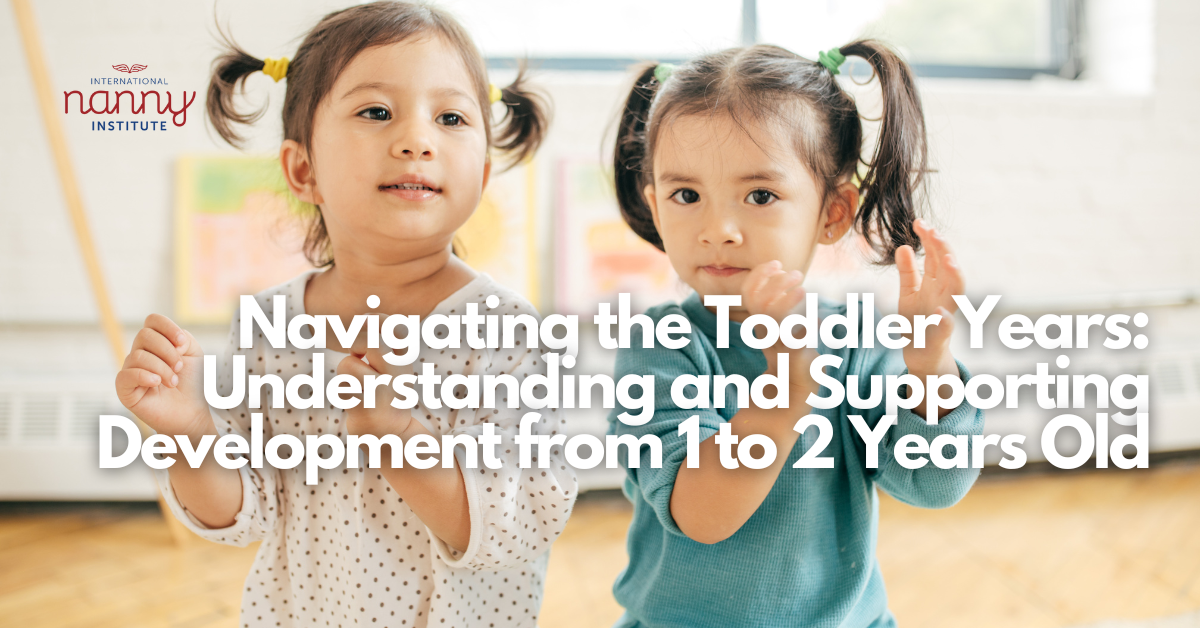What makes a ‘Professional Nanny’
Uncovering the Essential Characteristics of a skilled Nanny
Roles vary significantly from country to country and family to family, which makes it difficult to define the role of the professional nanny. As a result of this lack of clarity, many people consider themselves qualified to take on the role of a professional nanny when in reality they are not. Here we look at some of the experiences that do NOT qualify you to be a professional nanny:
Taking care of siblings or babysitting
Taking care of siblings or babysitting for friends or relatives is something that sparks an interest in a career in childcare for many people. Of course this is a good thing and can be a good base to build on but it is not adequate experience from which to take on professional nanny roles.
Often babysitting takes place when children are already in bed sleeping, or it may be a much more short-term arrangement where parents’ expectations are fairly low.
For example, a mother may employ a baby sitter to play with her kids for a few hours while she finishes a work project. Here she would expect the children to be kept safe, but she may be in the house or nearby, and not expect the babysitter to support children’s development, plan activities for them, cook meals or work with them on a long-term basis.
Some of the skills you may develop from this experience are:
- Basic childcare skills
- Trustworthiness
- Responsibility
Some skills you may need to develop further:
- More advanced childcare skills
- Knowledge of child development
- Improved communication with parents/care
Having your own children
Other people draw this idea that you don’t need to be qualified to look after children from the notion that parents are not qualified yet have to look after their own children.
This is a flawed idea on many levels; Firstly because it equates professional childcare with parenting, which is disparaging to both parties, childcare and parenting are distinct roles, and secondly because it seems to suppose that parenting is easy. Ask any parent and they will tell you that having kids can be really hard work.
Having your own children and taking care of them as they grow up, experiencing the highs and lows of parenting is a wonderful experience and there are plenty of skills from this that you can bring to a career as a professional nanny.
Nanny-parent-child relationships take many forms and nannies have been described as mothering-by-proxy, shadow mothers or third parents. (Macdonald, 2011).
However, being a parent does not mean that you are ready to work as a professional nanny as there are several fundamental differences between raising your own children and professionally caring for someone else’s.
Some of the skills you may develop from this experience are:
- Patience and resilience
- Understanding of family dynamics
- Empathy with other parents
Some skills you may need to develop further:
- Advanced knowledge of child development
- Working with families as a professional
- Communicating with parents
Working in a nursery
Working in a nursery or preschool environment is often a very demanding role. Expectations are high as you may be caring for many children at once and there are often strict regulations to comply with.
The skills that you learn through nursery work include talking to children’s parents and working in partnership with them to support children’s development. Most nurseries and preschools will also help you to develop your knowledge and understanding of child development and teach you how to plan activities that meet children’s individual needs.
Working in a nursery however does not prepare you completely to work as a professional nanny as working with children and families in their own homes requires a unique and specialised skill-set that is quite different to providing group care in a nursery setting alongside colleagues.
Some of the skills you may develop from this experience are:
- Planning activities for children based on their age, stage of development, interests and needs.
- A good working knowledge of child development
- Communicating well with parents
Some skills you may need to develop further:
- Working with children and families in their own homes
- Dealing with sibling dynamics and working with multiple ages of children at once
- Working with newborns and very young infant
Being a teacher
Being a teacher demonstrates a good level of education, commitment to children and skills in planning and assessment, all of which can be transferred into a career as a professional nanny.
However, being a teacher in and of itself does not qualify you to start a career as a professional nanny as there are many more skills that you will need.
Some of the skills you may develop from this experience are:
- Planning educational activities
- Making learning fun for children
- Assessing children’s developmental needs
Some skills you may need to develop further:
- Carrying out care routines
- Working in a home-based role
- Working with newborns, infants and toddler
Being an Au-pair
For some nannies, being an au-pair is an excellent stepping stone. Working in an au-pair’s role allows you to gain valuable experience of working with children and engaging in family life.
Although au-pairs live in the family home and work with children in this setting, they are often used for babysitting more than sole-charge care, and may not have responsibility duties such as designing routines or planning activities that support children’s development.
Some of the skills you may develop from this experience are:
- Working with children
- Working in a home based role
- Carrying out care routines
Some skills you may need to develop further:
- Sole charge working
- More in-depth knowledge of child development and how to support this
- Planning appropriate routines and activities
Teaching language classes
Teaching a language class is a fantastic way to gain experience working with children. It also helps you build up your knowledge and understanding of how children learn languages.
It’s likely that in teaching a class you have also gained some skills in managing children’s behaviour such as rewarding and promoting positive behaviour and discouraging negative behaviour.
However, teaching a class for a short period of time is totally different to being a sole-charge carer children throughout the day and whilst many of the skills you have developed will be useful and transferable, there are many others that you will still need to develop.
Some of the skills you may develop from this experience are:
- Making learning fun
- Behaviour management
- Supporting children’s language development
Some skills you may need to develop further:
- Working with children and families in their own homes
- A holistic understanding of child development
- Communication and partnership with parents
What parents expect from a professional nanny
There are several different kinds of nanny and parents’ needs and expectations will vary from role to role. However, as a general rule, expectations of a professional nanny are pretty high.
When hiring a nanny, parents are entrusting someone else with their children’s safety, emotional wellbeing and development, so it stands to reason that they may have demanding expectations.
A professional nanny will need to be able to plan and arrange safe, fun learning opportunities that suit children’s age and stage of development, and are based around their interests.
In order to do this they will need to be able to observe and assess children’s development in relation to the typical and expected sequence and rate of child development.
Parents will also expect a professional nanny to know how to plan and prepare healthy meals and snacks, carry out age appropriate care routines (such as making up bottle feeds safely, planning weaning, changing nappies, supporting sleep and rest times) and have up-to-date Paediatric first aid training so that they know how to respond and keep children safe in emergency situations.
Professional nannies will also need to show good organisational skills, time management skills and be able to communicate well with both parents/carers and children themselves. Sometimes a professional nanny may need to work in partnership with other agencies
What qualifications should a professional nanny have
Despite legally not requiring any formal qualifications, eighty-two per cent of nannies responding to the SIRC (2009) survey reported having a childcare-related qualification and in interviews and focus groups with nannies it was apparent that nannies viewed qualifications as an important part of their professional identity. Parents too are increasingly looking for nannies with qualifications.
Gaining qualifications in the field of childcare requires study and effort but through this, you are able to gain the knowledge and skills that you need to do your job properly.
Studying how children learn and develop means that you will feel confident to plan activities that will be stimulating to children of different age ranges and will help to support their development across different areas of learning.
Having the skills that you need to keep children safe means that you are able to carry out your role on a day to day basis as well as respond appropriately in an emergency.
Our International Nanny Institute provides practical and comprehensive childcare related courses designed to train and educate nannies, au pairs, babysitters and childminders.
We offer reasonably priced online training, which allows our students to study any time and anywhere.
Our courses are designed by a team of experts including psychologists, nutritionists, teachers, paediatric nurses and SEN specialists who are committed to maintaining high standards and staying up-to-date in the field of childcare.
The International Nanny Institute is passionate about empowering and raising the standards of child carers as professionals in their fields.
If you would like to complete a childcare related qualification, designed especially for nannies with us, browse our course catalogue now.











